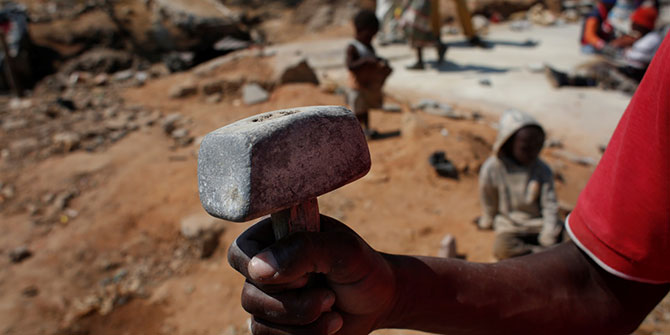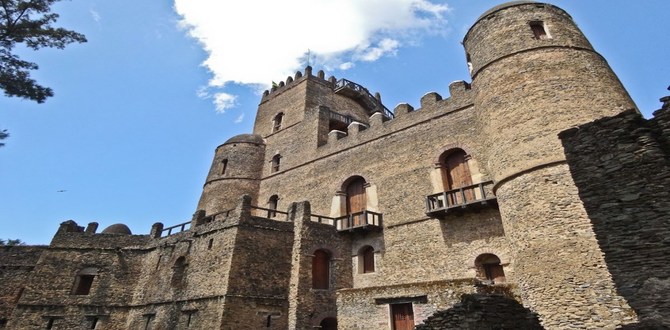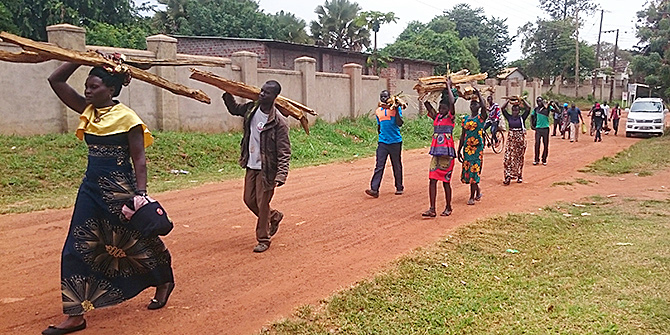South Africa has some of the world’s most progressive refugee legislation. So why do refugees have such a troubled time? Roni Amit explains.
This post is part of our series African Perspectives on Migration looking at the theme of Intra-Africa migration.
The world’s attention has long focused disproportionately on migration to Europe. Recent images of migrants arriving on Europe’s shores have only reinforced this tendency. But the reality is that the majority of migration is intra-regional. In Africa, as in the Middle East, only a small proportion of migrants leave the continent. Before the Syrian crisis, South Africa was the world’s top recipient of asylum seekers for six years in a row. The country’s response to these migrants has followed a now familiar path—discounting the legitimacy of their humanitarian claims in order to deny them the rights afforded to refugees and avoid the concomitant obligations placed upon the state. It is a path in which the refugee becomes economic migrant, security risk, or, to remove any lingering doubt, constitutes both.
The challenge for South Africa has been how to get around its refugee legislation. Drafted in 1998 under the post-apartheid era of democratisation, the law is among the world’s most progressive in terms of the rights it grants asylum seekers and refugees. Unlike other countries in the region, South Africa never established refugee camps . Instead, asylum seekers and refugees are free to settle anywhere in the country, and are also free to work and study.

Credit: DFID via Flickr (http://bit.ly/1caSZXc) CC BY-NC-ND 2.0
These rights have proved contentious in a country struggling to overcome its apartheid legacy. Housing, water, electricity, health care, and employment have remained inaccessible for a large portion of the population. The freedom afforded asylum seekers is an easy target on which to pin the blame for these shortcomings. According to this view, it is not governance failures, but rather the onslaught of foreigners that is responsible for the country’s socioeconomic ills. Hence the common refrains that the country is being overrun by foreigners; that the permissive asylum system is facilitating their entry; and that most of those in the asylum system—95% according to government statements—are in fact economic migrants seeking to exploit the system.
The notion that most individuals in the asylum system are there illegitimately displaces concern over their treatment. There is little cause for unease over the (mis) treatment of a population not seen as deserving of the rights afforded by the asylum framework. As a result, the government has done little to address the problems plaguing the asylum system, including rampant corruption and long queues that force asylum seekers to camp out overnight. High demand coupled with inefficiencies have made the refugee reception offices where asylum seekers must formally apply virtually inaccessible. The government has exacerbated these pressures by closing three of the country’s seven offices. Those asylum seekers who manage to get inside undergo cursory status determination interviews and receive rote decisions with almost no connection to the details of their claims and often containing legal and factual errors. Even the strongest of refugee claims will be rejected under this process. The high rejection rates are then used to reinforce the notion that most of those in the asylum system are economic migrants.
Neither an individual’s protection needs nor the accompanying legal guarantees provides individuals with any access to their rights. Through interpretive sleights of hand, government practice has both reinforced the notion that virtually all asylum seekers are economic migrants and has justified its departures from the law on security grounds. While the law remains rights-based, policy and practice have become ‘risk-based’– representing a more restrictive approach prioritising detention and removal, as laid out in a 2012 policy document released by the ruling African National Congress party.
The gap between law and practice prevents asylum seekers from accessing their rights, placing them at risk of deportation as ‘illegal foreigners’. For the fortunate few who are able to assert their rights in court, security is the government’s trump card. The fact that the courts have rejected this trump card has not stopped the government from continuing to invoke it in support of detentions and deportations. The government has not detailed the nature of the security threat. Instead, it suggests that it is the spectre of migration in and of itself that must be countered via stronger borders and widespread detention and deportation. The very presence of migrants constitutes a security threat that negates legally guaranteed rights.
Migration debates over economics and security—now being carried out globally—raise legitimate concerns. But they may also provide a cover for government policies aimed at circumventing rights guarantees for reasons having nothing to do with migration. In South Africa, the government has adopted these arguments without supporting empirical evidence in an effort to displace responsibility for its own domestic shortcomings. These efforts may sell well to the public, but they bring few tangible benefits while imposing great costs on those in need of protection.
Roni Amit is a senior researcher at the African Centre for Migration & Society at University of the Witwatersrand in Johannesburg, South Africa.
Read more articles from our series, African Perspectives on Migration
The views expressed in this post are those of the authors and in no way reflect those of the Africa at LSE blog or the London School of Economics and Political Science.





